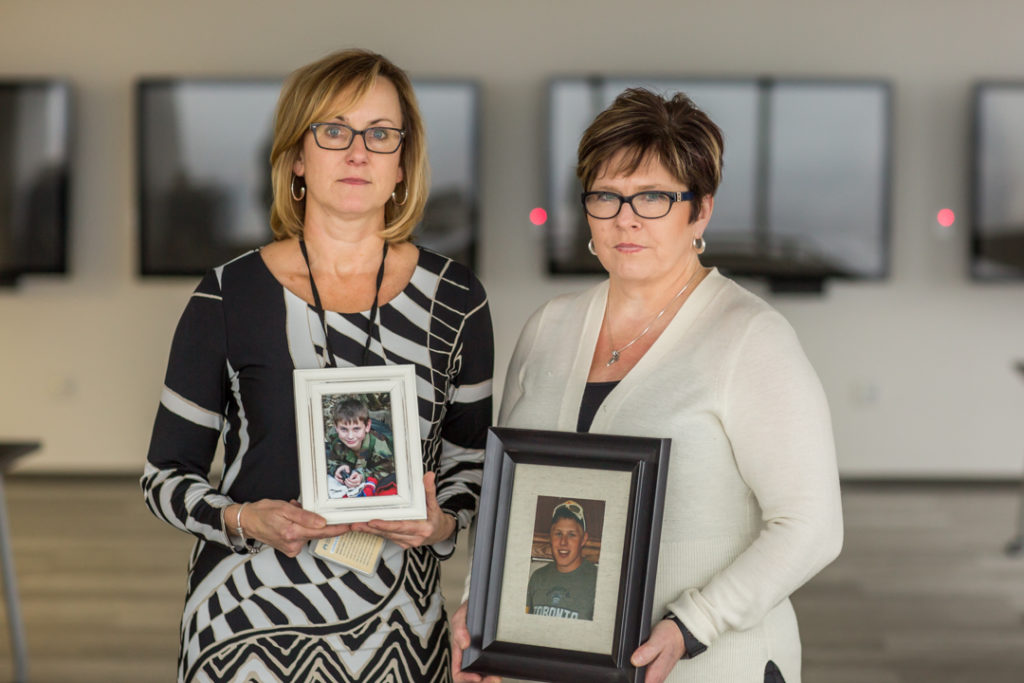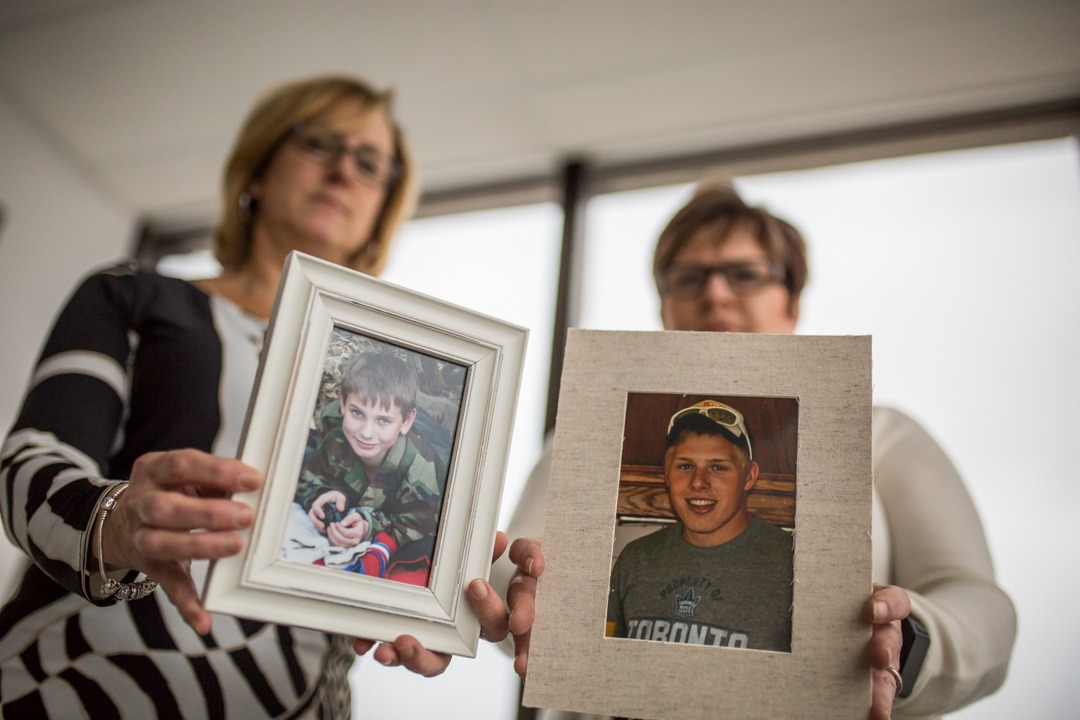
Learning from loss: bereaved mothers share education and inspiration
The unbreakable bond of parental grief
Elaine Keunen and Yvette Young have a lot in common. They are both registered nurses. They’ve both worked at Hamilton Health Sciences (HHS) for well over two decades. And they’ve both spent the majority of their career in Intensive Care.
A few years ago, they developed an even stronger bond when they each experienced an unimaginable tragedy.
In 2013, Young’s son Nolan died of carbon monoxide poisoning when he was just 11-years old. He had gone camping and after arriving late in the evening, decided to sleep in the van instead of pitching his pup tent. The fumes from a propane-powered cooler, accidentally left in the vehicle, killed him while he slept.
“You never forget the moment you get that news.”
“He loved the outdoors, and scouting,” Young recalls, “He had adorable dimples in his cheeks. He loved to laugh. He was such a great kid. I’ll always remember him laughing and pulling faces.”
Just over one year later, Keunen joined Young in the unspeakable grief of losing a child. Her 17-year old son Adam had just started a co-op placement at an auto wrecker. He was killed instantly in a workplace accident.

“You never forget the moment you get that news,” says Keunen. “He had his whole life ahead of him. He loved working with his hands, and wanted to work as a welder or auto mechanic. It’s hard to think about. It’s good to talk about him though.”
“I just kept thinking about all these families. We thought we understood before. But we’ve realized we didn’t know.”
Using their experience to change the culture of care
Both Keunen and Young understand the way losing a child changes your life. When they returned to their work, Keunen as an ICU nurse, and Young as a patient safety specialist in the Patient Experience & Safety Program, they started to notice flaws in the way staff members approached families who were about to say goodbye to their child.
“I just kept thinking about all these families,” says Young. “We thought we understood before. But we’ve realized we didn’t know.”
“Since you’ve been on the other side, you watch how we handle these families, and you realize what’s missing,” says Keunen. “We wanted to change that.”
Over the course of several months, Young and Keunen developed a presentation geared towards health care providers to teach them about supporting families through the loss of a child. It’s called ‘Parental grief: a journey through unimaginable pain.’
“It doesn’t matter whether the person is a child or their grown up child,” Young says, “it is a huge loss.”
“The family will remember every little detail from the day their child died,” adds Keunen. “It’s our job to make the experience as positive as it can possibly be in these circumstances.”
Helping providers navigate parental grief
The pair have delivered their presentation at an annual HHS conference called Focus on Trauma, and to the staff of Hamilton General Hospital’s ICU East/South. It shares their personal stories, and helps the audience understand how their supportive role affects the grieving process.
Some of the information is complex and nuanced, like the way anger, born out of feelings of pain or helplessness, may be expressed in interactions with staff. Other components are simple and straightforward. Young and Keunen counsel colleagues to allow parents time alone with their child after he or she dies, or offer to help them snip a lock of hair or collect a thumbprint.
“Both of our sons died suddenly. We didn’t get the chance to say goodbyes,” says Young. “In the hospital environment, you have an opportunity to make someone’s last moments with their child meaningful. Your actions during this time can help start someone toward a positive grieving process.”
“It’s important to offer empathy, accurate and consistent information, and to keep the lines of communication open.”
Above all, they emphasize the importance of clear and frequent communication.
“We’ve been avoided in hallways by people who didn’t know what to say to us,” Keunen says. “People who are losing a child or have just lost a child already feel alone and uncertain. It’s important to offer empathy, accurate and consistent information, and to keep the lines of communication open.”
Inspired to change
The two have had an overwhelmingly positive response to the seminars they’ve offered so far.
“Yvette and Elaine skillfully weaved animation, humor where appropriate, and relevant research findings into a moving presentation,” says Dr. Maureen Meade, an ICU physician who has attended the presentation. “It has changed my practice.”
Keunen and Young have noticed a similar positive change in the way many of their colleagues who’ve seen the presentation interact with families. They hope to continue sharing their experiences with staff at HHS, and are working towards offering this education hospital-wide.
They will be sharing their presentation at several Hamilton Health Sciences sites as part of the Winter Patient Experience Forum. Employees who are interested in attending can contact Patient Education for more information or register here.
